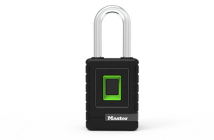With most of the devices we use now connected to the internet one way or the other, it’s also important to think about your privacy and data security. Hackers and cyber-criminals won’t hesitate to try and gain access to your device(s) if they find your network or device(s) to be vulnerable.
Speaking with Mikko Hypponen, F-Secure’s Chief Research Officer explained “Our appliances will soon be online, whether we like it or not”
“It might not seem like a big deal to have your toaster hacked, but it might seem a bigger deal if your toaster is hacked to open the door to your home network.”
“IoT devices are typically not the target of the hack, but just a vector in the hack. They get hacked so attackers gain access to where they want to go.”
Bearing that in mind, here are some security tips anyone can follow that will ensure you are not leaving yourself vulnerable to attacks from cyber-criminals.
1. Use multiple web browsers.
Keep at least one of them “clean” of plugins. Use the clean one for surfing new, unfamiliar sites. You can get extra security for your online banking sessions by using an internet security package that features banking protection.
2. Lock your mobile phone, tablet and PC when they’re not in use.
Accidents happen. People lose their devices or, worse, have theirs stolen. Protect your data by always locking devices with a password. Also, make sure to use mobile security software which allows remote locking and wiping of the device, to protect the content if it is lost or stolen.
iPhone users should look for the advanced settings option when setting up a passcode. This will allow them to set a passcode that’s longer than the usual four numbers. Having for example an 8-number passcode will make brute force attacks much harder.
3. Use unique and complex passwords for all of your accounts.
If you have the same password for all your accounts, such as Amazon, eBay and PayPal, and a hacker has managed to compromise one of those accounts, then the hacker will most likely try to access you’re other accounts using the same password.
Use a password manager app to keep all your important credentials. This way, you just need to remember one password. Click here to try a free one. Also, use two-factor authentication for critical accounts, such as email.
4. Uninstall software / apps that you don’t use.
If you would like to know which apps can see your personal information, cost you money or threaten your privacy in any way, download F-Secure App Permissions for Android which gives you a very simple and useful view of all of your installed apps. And don’t worry – it’s free, and requires no permissions.
5. Keep software up to date.
Many people have a tendency to ignore software update messages, as they find them a hassle and often notice no difference in the program afterwards. Usually, these updates include fixes to security vulnerabilities. By not updating the software as it is required, the device is left open to attacks, as cyber-criminals are aware that the vulnerabilities exists and know many potential victims won’t patch straight away.
6. Don’t share crucial identification information – national insurance number, account information with sites you don’t know.
Also, consider if the answers to your bank security questions are available on social media – e.g. first school and mother’s maiden name. Note that you don’t have to fill in the correct answer to such security questions. Your answer to ‘first school you went to’ could be ‘banana’, and nobody would be able to guess it.
7. Organise!
Keep your email inbox clean and spam free so you will recognise suspicious emails when you get them. Opening unsolicited email attachments or clicking on links in an email can lead to your device been infected with malicious software. In particular, avoid clicking links in emails that are supposedly from your bank. Always access your bank’s website by using your own bookmark in your browser.
If in doubt, ring your bank to speak directly to customer care. Find the bank’s contact number on its website, not in the email.
8. Cover your laptop’s webcam to prevent anyone spying on you if you are hacked.





1 Comment
Pingback: 8 Things You Should Do Now To Keep the Cyber Cr...